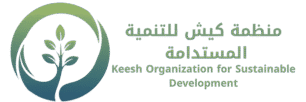Women and Sustainability: Empowering Women as a Core Pillar for Achieving Development Goals in Iraq and the Vision of KEESH Organization for Sustainable Development
Introduction
Empowering women is a decisive factor in achieving sustainable development, as their economic, social, and environmental participation strengthens society’s capacity to adapt to contemporary challenges. KEESH Organization for Sustainable Development aims to support and empower Iraqi women by adopting initiatives that enhance their active participation across various sectors, thereby contributing to the achievement of sustainability goals at the national level.
1. The Importance of Women’s Role in Sustainable Development
Foundation for Economic and Social Well-Being: The United Nations indicates that involving women in the labor market could boost the GDP of emerging countries by up to 26% by 2030, positively impacting the economic and social stability of Iraqi society. Environmental and Community Protection: Women in rural Iraqi communities play a pivotal role in managing natural resources, particularly water and sustainable agriculture. Initiatives such as “Climate Wise Women” highlight the importance of training 1,500 women farmers to lead efforts in climate change adaptation and the protection of local ecosystems.
2. Challenges Facing Iraqi Women
Gap in Political and Economic Representation: Despite some progress, women’s membership in parliament was only 29.2% as of February 2024, alongside challenges in accessing leadership positions and decision-making roles. Gender-Based Violence: According to WPHF, violence against women remains a barrier to their full participation in society, requiring coordinated efforts from government and civil society to establish effective protection mechanisms. Double Burden and Traditional Roles: Women and girls in Iraq spend 24.1% of their time on unpaid household work, compared to 4.2% for men, reducing their opportunities for education and professional employment.
3. Initiatives and Efforts to Enhance Women’s Role in Sustainability
Training and Leadership Programs: UNDP launched the project “Strengthening the Role of Women Leaders in Community Development,” which trained housewives and professionals in leadership skills and planning for local development projects, alongside partnerships to support small women-led enterprises. Microfinance and Entrepreneurial Projects: International institutions collaborate with local banks to economically empower women by providing concessional loans to female entrepreneurs, contributing to the development of small and sustainable businesses such as hydroponic farming and drought-resistant crops. Multi-Sector Partnerships: The Women’s Peace and Humanitarian Fund (WPHF) fills funding gaps for local women’s organizations working in peace and protection, supporting community stability and enhancing women’s role as key actors in reconciliation and peacebuilding.
4. The Role of KEESH Organization for Sustainable Development
Awareness and Educational Campaigns: KEESH Organization for Sustainable Development organizes workshops and media campaigns in Baghdad and other governorates to inform women about their economic and environmental rights, and to train them in small project management skills to achieve financial independence. Building Strategic Partnerships: The organization collaborates with government entities and the private sector to secure funding opportunities for women-led environmentally friendly projects, such as home solar energy systems and hydroponic farming, aiming to integrate women into new sectors that help reduce emissions and improve food security. Supporting Research and Field Monitoring: KEESH funds field studies on the impact of empowerment programs on water and soil resource use in rural areas, and publishes periodic reports that contribute to improving resource management policies and promoting sustainable consumption. Community and Media Engagement: The organization launches digital campaigns under the slogan “Empowering Women, Pillar of Sustainability,” highlighting success stories of Iraqi women who have made a difference through environmental and social projects, creating role models and motivating others to participate.
Conclusion
Empowering women is not limited to the social dimension; it also serves as a vital indicator of the success of any development strategy. By coordinating efforts between international and local entities and adopting initiatives like those launched by KEESH Organization for Sustainable Development, Iraq can move forward toward a prosperous and sustainable future that ensures active participation of women in building a strong and balanced nation.




